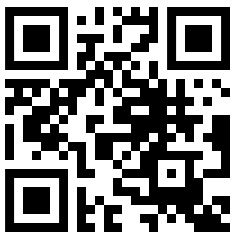Personal finance |
December 7, 2020 |
In the world of finances, a person must be careful. If you do not know what to do or whom to ask, you will be taken advantage of.
One of the first things an immigrant does after arriving in the USA is to buy a car. Some of them are able to negotiate a price a little, but almost nobody is able to avoid predatory 27% interest rates simply because they do not know that other loan options exist.
Many immigrants are in need of GED and financial education to be able to establish self-sustainability, mobility and integration into the society. Many of them come from small towns where banking and credit cards are not widely used and checkbooks are not known. The attempt of trying to understand all the details (especially the official language) without help can often be overwhelming, and to find the help in a new country can be challenging. Because of lack of knowledge they face bank fees, overdrawing accounts and find themselves at payday loan offices.
To remove the burden of poverty and let people in the community breathe freely and concentrate on education and improving their quality of the life LETI started providing financial literacy classes in 2015.
On the positive side, many immigrants create shops, restaurants and other businesses in the area, but they often operate intuitively, often missing many opportunities. So financial education is crucial for running them wisely and for integrating the Latino community into American society and rising the standard of living.
The first classes were taught by Rosario Reyes who has a lot of experience with immigration and the financial part of it and Tom Laing who has great experience in running businesses. Classes were based on current needs of the community, experience, and real life lessons and practices. Sessions immediately became popular and in 2016 LETI ran 48 hours, 4 days a week of financial classes.
Some topics of the classes were about:
·How to select the right bank and how to use the checking account
·How loans can help and why banks loan money
·Preparing the monthly budget, setting goals and the importance of credit reports
·Credit card features and the responsible use of credit
Many of the students joined the program not once, a lot joined GED, homeownership workshops, advanced to a business class, and some stayed at LETI as volunteers.
The most confusing topic is usually banking, but one of the most eye-opening is usually personal savings (retirement, down payment for the mortgage, safety cushion).
A lady followed a simple advice to save just $5 every day and after some time, with the money she accumulated, she was able to pay her rent and take care of her sick mother.
The sessions are 2.5 hours, but it almost always turns into 3 hours or more, because people would ask questions that they didn’t have the courage to ask during the class. That led to an idea to provide additional personal consulting in the future.
Also, the next series of classes will be dedicated to resilience, or how to withstand unexpected financial difficulties such as economy crisis pandemic.
Classes are free and conducted at LETI’s classroom, keep up with LETI updates to sign up.



